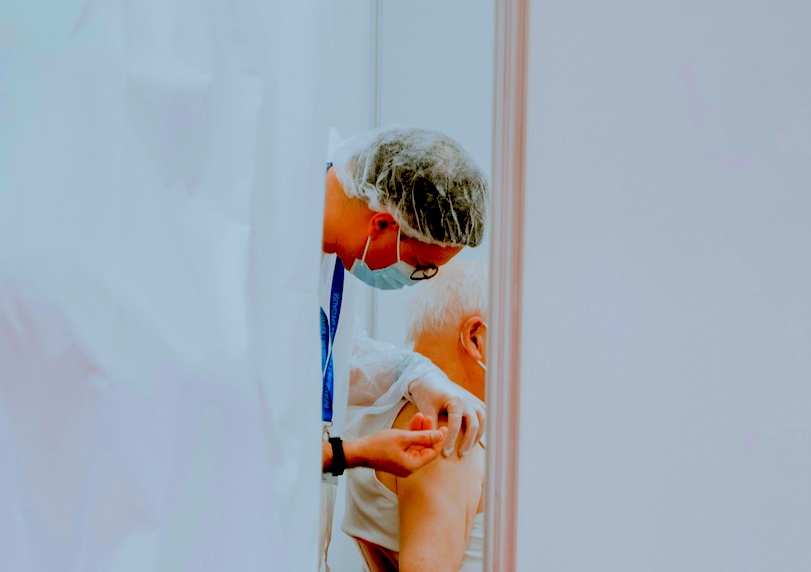Governments, health systems, and civil society should treat vaccination as a continuous investment in health across the lifespan, rather than a one-off intervention during childhood, according to a 10-point roadmap designed to close global gaps in vaccine access and delivery.
Emma Doherty, Dr Marta Lomazzi and Adjunct Professor Michael Moore AM, writing from the World Federation of Public Health Associations (WFPHA), explain more below.
Emma Doherty, Marta Lomazzi and Michael Moore write:
Vaccination has long been seen as a paediatric matter. But as populations age, new infectious threats emerge, and health systems evolve, it’s time to update our thinking. Immunisation shouldn’t end in childhood – it must continue across the entire lifespan.
That’s the central message of a new global initiative calling for a shift toward life-course immunisation.
This consideration comes at a time of complex geopolitical dynamics. In the United States, recent debates over vaccine mandates and funding cuts to immunisation programs have not only shaped domestic policy but have also sent mixed signals worldwide — affecting global vaccine confidence, supply chains, and the tone of public health diplomacy.
More than ever, this adds impetus to the need for international coordination.
A global life course immunisation approach recognises that protection from infectious diseases is needed from infancy through old age, and in every country.
And it goes beyond individual benefit: a society where everyone is protected at every stage of life is more resilient, equitable, and prepared for future pandemics.
From fragmentation to coordination
To drive this agenda, the World Federation of Public Health Associations (WFPHA), through its International Immunization Policy Taskforce, convened key organisations including International Pharmaceutical Federation (FIP), the International Council of Nurses (ICN), the International Federation on Ageing (IFA), the International Federation of Medical Students’ Associations (IFMSA), the International Federation of Social Workers (IFSW), the International Pharmaceutical Students’ Federation (IPSF), the Junior Doctors Network (JDN), the World Medical Association (WMA) and the World Organization of Family Doctors (WONCA).
Their shared concern?
Despite growing support for vaccination among these actors, efforts remain fragmented and lack global coordination.
The result of this dialogue is a joint Call to Action — a 10-point roadmap designed to close the gaps in vaccine access and delivery. It calls on governments, health systems, and civil society to treat vaccination not as a one-off intervention, but as a continuous investment in health.
The Call to Action is a dynamic declaration offering a strategic, equity-driven approach to immunisation, through:
- Making vaccines accessible and affordable to all, especially health and social care workers
- Ensuring vaccines are available at every stage of life, not just in childhood
- Equipping the healthcare workforce to deliver vaccines effectively
- Creating adult immunisation schedules alongside existing paediatric programs
- Building data systems that track immunisation across lifespans
- Embedding vaccination into broader health and social policies
- Simplifying the pathways to receive vaccines
- Promoting vaccine confidence through education at all ages
- Engaging communities in vaccine planning
- Involving youth and ageing populations in the design and delivery of immunisation programs.
From declarations to deliverables
Crucially, the Call to Action isn’t just another declaration — it’s backed by specific commitments. At a high-level roundtable hosted by WFPHA, participating organisations laid out how they’re bringing this vision to life:
- The Junior Doctors Network (WMA) is using its global youth platform to advocate for vaccination and influence national policies.
- The IFMSA is integrating vaccine education into medical training and pushing for community-based strategies.
- The International Federation on Ageing is targeting misinformation through its Vaccines for Life program.
- The FIP is empowering pharmacists to take on leadership roles in vaccine delivery and public health messaging.
- The IPSF is advancing pharmacist led delivery models, developing legal frameworks and driving culturally sensitive outreach.
- The ICN supports mandatory vaccination for health workers and cross-sectoral collaboration.
- The WMA is developing science-based tools to boost trust in vaccines.
- WONCA, the global network of family doctors, is working to make immunization a core part of primary care.
These are not one-size-fits-all solutions — they reflect the strengths of each profession and the diverse needs of populations around the world. But the direction is unified: vaccines must be for everyone, everywhere, for life.
Permanent pillar
The case for life-course immunisation is strong, and timely.
This is a period of critical shifts from age-limited vaccine programs to lifelong, inclusive models. As health systems face growing challenges — from aging populations to the next pandemic threat — embedding vaccination into every stage of life isn’t just good policy. It’s a public health imperative.
To succeed, there needs to be more than technical guidance.
Trust, coordination, and the political will are necessary to make vaccination a permanent pillar of public health — not just for the young, but for all.
Author details
Emma Doherty, University College – Cork, is an Intern at WFPHA.
Dr Marta Lomazzi is Chief Operations Officer at WFPHA
Adjunct Professor Michael Moore AM is Chair of WFPHA’s International Taskforce on Immunization Policy.

See Croakey’s archive of articles on vaccination






